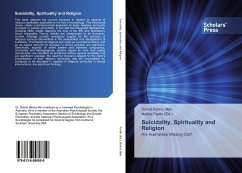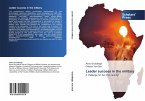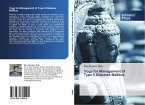This book explores the current literature in relation to aspects of religious spirituality applicable to the field of suicidology. This theoretical review utilizes a hermeneutical approach to apply religious spirituality concepts to suicide prevention, in line with the Integrated Motivational-Volitional (IMV) model. Applying the lens of the IMV and Durkheim's Social Integration Theory, results are extrapolated to an Australian context. Findings provide conceptual support for the inclusion of religious spiritual interventions in the assessment and management of suicidality. The themes of religious spirituality as a protective factor, and as an aspect relevant for inclusion in clinical practice, are significant. Specifically, aspects of belief system and behavior congruency, community and belongingness, positive regard for God, and coping mechanisms, are identified as protective factors against suicidality that are significant. Likewise, the need for clinician's respect for the client's interpretation of their religious spirituality, and the requirement for therapists to be educated in aspects of religious spirituality in clinical interventions, are significant findings.
Bitte wählen Sie Ihr Anliegen aus.
Rechnungen
Retourenschein anfordern
Bestellstatus
Storno








